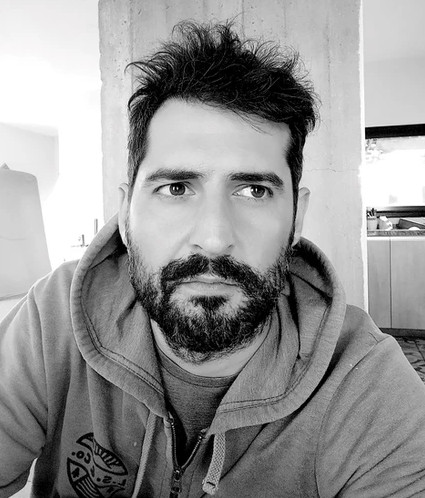Tell us about your artistic path
My artistic research has always been linked to images, in fact I’m a director of photography. Continuity Of Grace is my first fictional short film as a director. I was born in a rural area of Argentina, in the Pampas, an area of vast expanses and fields, with its immense plain that merges with the horizon. I grew up and lived there until my teenage years. Then, I travelled to different cities of Argentina and Europe where time and distance caused a change in my way of seeing and thinking about my birthplace. Each time I came back to my hometown, that seemingly insignificant and boring plain became less and less predictable and more interesting to me, in its nuances and intimate story. That was when I became interested to this landscape: the plain as an emotional geography. That interest led me to read, investigate and begin to see this place as the potential setting for multiple fictional narratives. Narratives which are connected to story of my family, descended from Italian immigrants, but also to the story of my country itself, since cereals and meat are produced in this plain, and those activities define not only the economy but also the culture of this country.
Let’s talk about your movie in competition at Laceno d’Oro: how did it start? How did you find the spark?
In 2020, during Covid19 lockdown, I settled in a country house near my hometown, surrounded by the rural plain I told you about. There I lived for several months surrounded by this landscape that never ceased to impress me with its vastness. I imagined, then, those first immigrant men and women who saw that amazing landscape for the first time: did they feel the way I felt? How did they feel when they found themselves under these immense skies in such a vast space? How did they feel when they first saw heavy clouds announcing a storm? What did they dream about the first night they slept here? This game of fantasy led me to start filming. My intent was to get closer to the emotional and personal experience of someone who wants to settle somewhere new. I was interested in the fragility of that moment. The immigrants know nothing of the new land, they know nothing of what the future brings, they don’t even speak the local language. Their existence is fragile, and I wanted to learn more about how we all face this vulnerable state.
Cinema and festivals are finally coming back to theatres. Do you think that, after the last two years, cinema – from production to distribution and access – has inexorably changed?
I believe that the production, distribution, and access to movies have undergone major changes in recent decades and, specifically in terms of access, the pandemic helped accelerate things with VOD (video on demand). Personally, I prefer theatres because I see them as the only places where I can get to experience a cinematographic work in all its power. On the other hand, VOD allows me to access movies from around the world that I wouldn’t otherwise see. I hope cinema and VOD can coexist; I think movie-lovers enjoy both possibilities.

